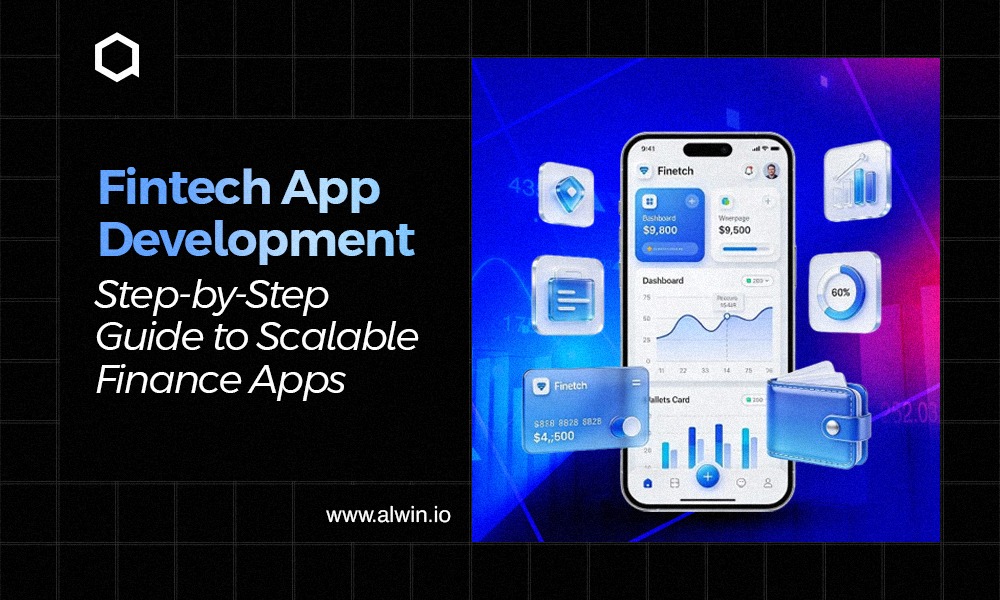The iGaming industry has experienced remarkable growth over the past few decades, emerging as a significant player in the global entertainment market.
In the second quarter of 2024, Super Group reported a revenue of $156.2 million, marking a 20% increase compared to the same period in the previous year. The company also achieved a net income of $20.2 million for Q2 2024, up from $7.1 million in Q2 2023.
Additionally, Super Group's adjusted EBITDA for the quarter was $33.2 million, reflecting a significant rise from $20.2 million year-over-year. These results highlight the company's robust growth and strong performance in the iGaming sector.
Recently, Optimove has partnered with Captain Up and Gamanza to introduce the first AI-orchestrated gamification solutions specifically designed for iGaming and sports betting operators. This collaboration aims to enhance customer engagement and retention by integrating gamification strategies into the gaming experience.
In this comprehensive guide, we will explore the current iGaming landscape, examine the regulatory frameworks, and highlight future trends shaping the industry.
What is iGaming?
iGaming, short for "Internet Gaming," refers to the wide range of online gaming activities that encompass betting, casino games, poker, sports betting, and other forms of gambling, as well as games of skill, such as esports over the Internet, often involving real money.
Unlike traditional gaming, which occurs in physical casinos, iGaming allows players to engage in gambling from anywhere with an Internet connection. Online gambling, a key component of iGaming, focuses on wagering on uncertain outcomes, such as virtual poker and sports events.
The significance of iGaming in the gaming industry is underscored by its rapid growth and increasing market share.
iGaming and Sports Betting operators now have more than just gamification; they now have AI-orchestrated gamification as part of the entire player journey and experience.
- Pini Yakuel, CEO of Optimove
This highlights how iGaming is transforming player engagement and shaping the future of the industry.

The Evolution and History of iGaming
1994: Microgaming developed the first online iGaming website.
1996: The Kahnawake Gaming Commission was established to regulate online gambling licensing activities worldwide.
1998: Microgaming introduced "Cash Splash," its first progressive online jackpot slot, and PlanetPoker launched the first online poker room.
1999: Over 700 top online casinos were operating, and advanced features like the multiplayer option were introduced.
2000: More countries opened their doors to online gambling, reaching approximately 8 million users worldwide. The industry surpassed $2 billion in revenue.
2003: One of today's most popular online casino sites, 888.com, was launched.
2010: Mobile devices became mainstream, with players wagering over $10 billion by 2010.
2020: The iGaming market size reached $59.6 billion.
2021: The industry continued to surge, with advancements in mobile gaming and innovative technologies, reaching a value of $61.5 billion.
2022: Cryptocurrency adoption and enhanced VR/AR experiences gained traction, offering immersive gameplay.
2023: The market is expected to grow to $88.65 billion at a CAGR of 9.3%, projected to reach $125.6 billion by 2027 at a CAGR of 9.1%.
Today: The iGaming sector is projected to reach $184.28 billion by 2032, representing a 190% increase over the decade, reflecting its rapid evolution and increasing digitalization of gambling.

Key Opportunities in the iGaming Market
Diverse Platforms:
- Online Casinos: Major revenue driver with innovations like live dealer games and virtual reality.
- Sports Betting: Lucrative, especially with real-time data integration.
- eSports Betting: Growing appeal among younger audiences.
Emerging Markets:
- Asia-Pacific and Latin America: High growth due to increased internet penetration and mobile device usage.
- New Regulations: Legalization in regions like the US opens significant market opportunities.
- ROI Potential: Multiple revenue streams (player deposits, in-game purchases, advertising) offer substantial ROI, particularly in developing markets.
- Mobile Gaming: Over 50% of the market share; mobile-first experiences are driving industry growth, with strong future potential.
The shift to mobile-first gaming experiences has accelerated, with a growing number of players choosing mobile platforms for their convenience and accessibility.
Types of iGaming Platforms Available in the Market
The iGaming industry encompasses a diverse range of gaming options, catering to various player preferences. Here are the primary types of iGaming:
1. Online Casinos
- Slots: Digital versions of traditional slot machines, featuring various themes and gameplay mechanics.
- Table Games: Classic casino games available online, including:
- Poker: Various formats, including Texas Hold'em and Omaha.
- Blackjack: A popular card game where players aim to beat the dealer.
- Roulette: A game of chance where players bet on where a ball will land on a spinning wheel.
2. Live Dealer Games
Real-time games hosted by live dealers, allow players to interact and engage in a more immersive experience.
3. Sports Betting
- Traditional Sports Betting: Wagering on the outcomes of various sports events, including football, basketball, and more.
- Esports Betting: Betting on competitive video gaming events, has gained popularity among younger audiences.
4. Online Poker
- Online Poker Rooms: Platforms where players can compete against each other in various poker games.
- Major Tournaments: Online events that attract large player pools and offer significant prize money.
5. Lottery and Bingo
- Online Lottery Platforms: Websites where players can purchase tickets for various lotteries.
- Virtual Bingo Halls: Online spaces where players can participate in bingo games with others.
6. Fantasy Sports
- Daily Fantasy Sports (DFS): Short-term fantasy leagues that allow players to draft teams and compete for cash prizes on a daily basis.
- Season-Long Fantasy Sports: Traditional fantasy leagues where players draft teams and compete over an entire sports season.
Schedule a call with our experts to launch your own iGaming Platform! Chat with us on WhatsApp
Legal and Regulatory Landscape
The iGaming industry operates within a complex and ever-evolving legal and regulatory framework that varies significantly across different regions.
While some countries have embraced online gambling and established comprehensive regulatory systems, others maintain strict prohibitions or ambiguous laws.
Global Overview of iGaming Regulations
| Region |
Legal Status |
| Europe |
Approximately 50 countries have legalized some form of online gambling as of 2023. The UK, Malta, and Gibraltar serve as hubs for licensed operators. |
| United States |
25 states have legalized some form of online gambling as of 2023, with New Jersey, Nevada, and Pennsylvania leading the way. |
| Asia |
Regulations vary widely, with some countries like Singapore and Malaysia prohibiting online gambling and others like the Philippines and Macau allowing it. |
| Australia |
Online gambling is legal and regulated at the federal level, with the Interactive Gambling Act 2001 governing the industry. |
Licensing Requirements and Compliance Challenges
Obtaining and maintaining an iGaming license is a rigorous process that varies depending on the jurisdiction. Operators must adhere to strict standards, including customer identity verification, anti-money laundering measures, and responsible gambling practices.
Compliance with evolving regulations is a significant challenge for iGaming operators.
As new markets open up and existing ones update their laws, operators must stay informed and adapt their practices accordingly.
3 Major iGaming Licensing Authorities are:
Failure to comply can result in hefty fines, license revocation, and even criminal penalties.
Responsible Gambling and Player Protection
Responsible gambling and player protection are key priorities for iGaming regulators worldwide. Operators are typically required to implement measures such as age verification, self-exclusion options, deposit limits, and player support services.
| Jurisdiction |
Responsible Gambling Measures |
| United Kingdom |
The UK Gambling Commission requires operators to contribute to the National Responsible Gambling Strategy. |
| Malta |
The Malta Gaming Authority mandates that operators provide information on problem gambling and access to support services. |
| New Jersey |
The New Jersey Division of Gaming Enforcement requires operators to implement responsible gambling programs and provide resources for problem gamblers. |
As the iGaming industry continues to grow, the importance of responsible gambling and player protection will only increase.
Regulators and operators must work together to ensure that the industry maintains a strong commitment to social responsibility.
iGaming Technology and Innovations
The iGaming industry is driven by several key technologies that enhance player experiences and improve operational efficiency:
Key Technologies
- Artificial Intelligence (AI) and Machine Learning (ML): These technologies enable personalized gaming experiences, optimize customer support through chatbots, and analyze player behavior for tailored recommendations.
- Virtual Reality (VR) and Augmented Reality (AR): VR and AR create immersive gaming environments, allowing players to interact in virtual casinos, enhancing the overall gaming experience.
- Blockchain Technology: Blockchain enhances transparency and security in iGaming by providing a decentralized ledger for transactions and game outcomes.
Software Providers and Game Development
Software providers like NetEnt, Microgaming, and Evolution Gaming are essential to the iGaming ecosystem. They develop engaging games with high-quality graphics and user interfaces, driving player engagement.
Impact of Technological Advancements
Technological advancements have increased accessibility, with over 60% of online gambling revenue generated through mobile devices. Cloud computing has also enabled scalable infrastructure for operators, improving efficiency and reducing costs.
Strategies for Success in iGaming
To succeed in the competitive iGaming industry, operators must navigate, market trends, consumer behavior, and effective marketing strategies. Here are key strategies for success:
Market Trends and Consumer Behavior
- Mobile Gaming Growth: The rise of mobile gaming has transformed player preferences, with many users opting for mobile platforms due to convenience and accessibility. Over 60% of online gambling revenue is now generated through mobile devices.
- Personalization: Players expect tailored experiences. Utilizing AI and data analytics can help operators understand player preferences and enhance satisfaction.
Effective Marketing Strategies
- Digital Marketing: Invest in SEO, content marketing, and social media to reach a wider audience. Engaging content and targeted ads can drive traffic and conversions.
- Affiliate Marketing: Collaborate with affiliates to expand reach and leverage their established audiences. Statistics show that affiliate marketing can generate up to 30% of total revenue for iGaming operators.
| Marketing Strategy |
Key Benefits |
| Digital Marketing |
Increases visibility and engagement |
| Affiliate Marketing |
Expands reach and drives conversions |
Successful Business Models
Freemium Model: Offering free games with in-game purchases can attract new players while generating revenue from those willing to spend.
Subscription Services: Consider subscription-based models for exclusive content or features, providing a steady revenue stream.

The Risks and Challenges in iGaming
While the iGaming industry presents significant opportunities for growth, it also comes with inherent risks and challenges that operators must navigate.
Common Risks in iGaming
- Regulatory Risks: Compliance with varying local laws is crucial. Non-compliance can lead to fines and license revocation.
- Market Saturation: Increased competition makes it challenging for operators to differentiate themselves and retain players.
- Player Protection: Ensuring responsible gambling practices is essential to avoid reputational damage and legal issues.
Types of iGaming Fraud and Prevention Methods
Fraud is a growing threat, with a 68.6% increase in digital fraud rates in iGaming between 2019-2021.
Common types of fraud include:
- Account Takeovers (ATOs): Unauthorized access to player accounts can lead to stolen funds and damage player trust.
- Payment Fraud: Fraudulent transactions create costs and risks for operators, making effective prevention measures crucial.
To prevent fraud, iGaming operators should:
- Implement Multi-Factor Authentication: Require multiple forms of verification to access accounts and make transactions.
- Leverage Machine Learning: Use AI-powered fraud detection systems to identify suspicious activity in real-time.
- Conduct Regular Audits: Assess vulnerabilities and address them proactively to stay ahead of fraudsters.
Future Trends in iGaming
- Continued shift to online casinos as more jurisdictions regulate online gambling
- Integration of mobile gaming, with players increasingly preferring mobile-friendly platforms
- Rise of live dealer games, offering interactive experiences that mimic physical casinos
- Adoption of cryptocurrencies by more iGaming operators, enhancing security and transaction speed
- Advancements in AI and personalization, using player behavior analysis to tailor recommendations and promotions
- Immersive technologies like VR and AR revolutionize gameplay with immersive environments
- Enhanced social interaction features foster community and engagement among players
- Regulatory changes and market expansion as more regions legalize online gambling, with evolving regulations focused on responsible gaming and player protection
The future of iGaming will be defined by the integration of advanced technologies that enhance player experiences.
- Bruce Casino, industry futurist
Final Thoughts
The future of iGaming looks incredibly promising, with continuous advancements and growth on the horizon. If you have a passion for gaming and a knack for technology, now might be the perfect time to think about starting your own iGaming platform.
Imagine creating a space where players can enjoy exciting games while also prioritizing responsible gaming practices. By focusing on delivering exceptional experiences and understanding what players want, you can carve out your niche in this vibrant market.
So, if you're ready to take on a new challenge and explore the possibilities within the iGaming industry, consider taking that first step. With dedication, creativity, and a commitment to excellence, you can turn your vision into reality and make a meaningful impact in the world of online gaming.
The journey may be challenging, but the rewards can be significant, both for you and the players you serve.
Don't wait any longer – start your iGaming journey today,
Contact our game development experts, and be part of an industry that's shaping the future of entertainment.



